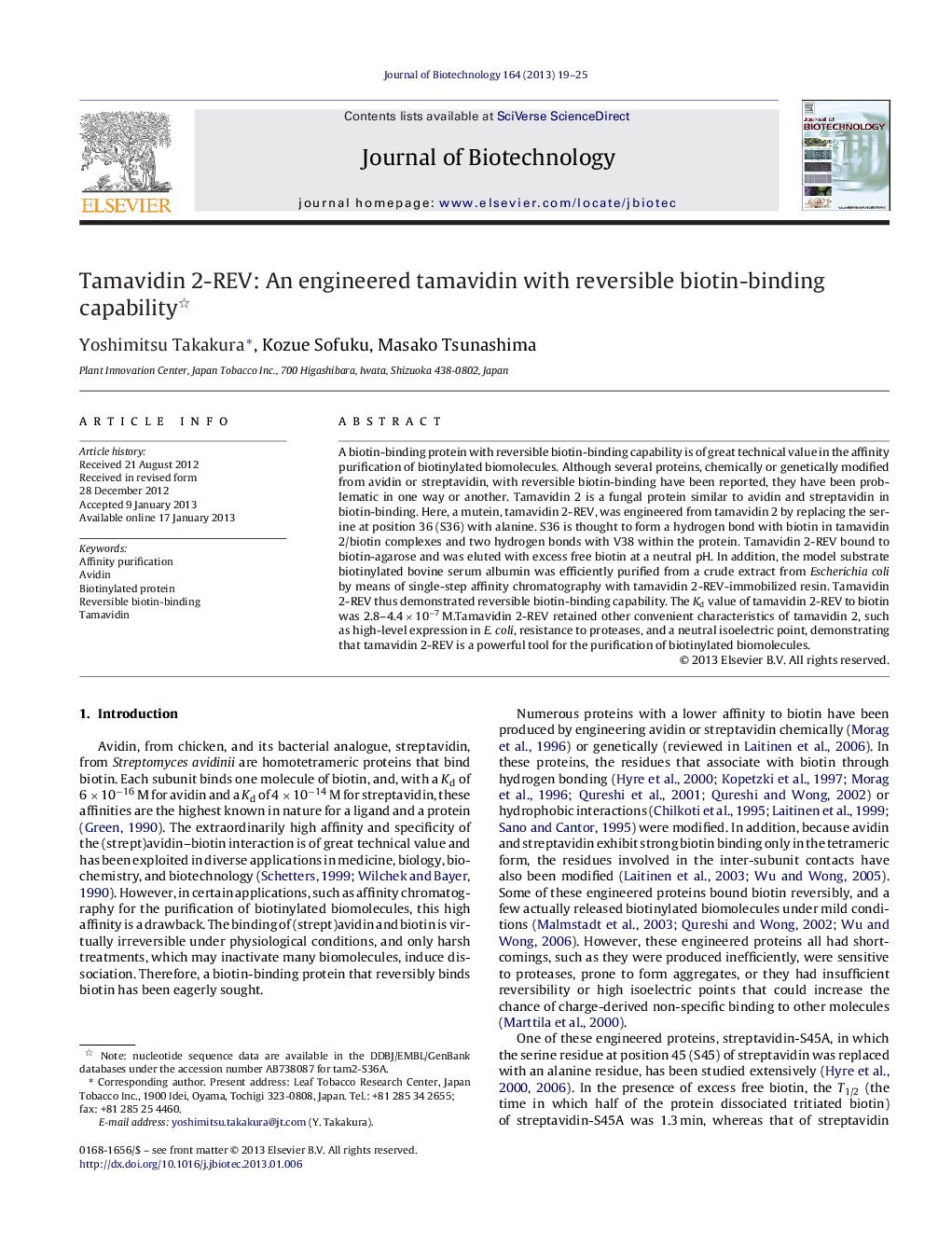| Article ID | Journal | Published Year | Pages | File Type |
|---|---|---|---|---|
| 23556 | Journal of Biotechnology | 2013 | 7 Pages |
A biotin-binding protein with reversible biotin-binding capability is of great technical value in the affinity purification of biotinylated biomolecules. Although several proteins, chemically or genetically modified from avidin or streptavidin, with reversible biotin-binding have been reported, they have been problematic in one way or another. Tamavidin 2 is a fungal protein similar to avidin and streptavidin in biotin-binding. Here, a mutein, tamavidin 2-REV, was engineered from tamavidin 2 by replacing the serine at position 36 (S36) with alanine. S36 is thought to form a hydrogen bond with biotin in tamavidin 2/biotin complexes and two hydrogen bonds with V38 within the protein. Tamavidin 2-REV bound to biotin-agarose and was eluted with excess free biotin at a neutral pH. In addition, the model substrate biotinylated bovine serum albumin was efficiently purified from a crude extract from Escherichia coli by means of single-step affinity chromatography with tamavidin 2-REV-immobilized resin. Tamavidin 2-REV thus demonstrated reversible biotin-binding capability. The Kd value of tamavidin 2-REV to biotin was 2.8–4.4 × 10−7 M.Tamavidin 2-REV retained other convenient characteristics of tamavidin 2, such as high-level expression in E. coli, resistance to proteases, and a neutral isoelectric point, demonstrating that tamavidin 2-REV is a powerful tool for the purification of biotinylated biomolecules.
► Tamavidin 2-REV is a novel biotin-binding protein with reversible biotin-binding. ► The productivity of tamavidin 2-REV in Escherichia coli was very high. ► A biotinylated protein was efficiently purified by using tamavidin 2-REV. ► Tamavidin 2-REV was resistant to protease K and it had neutral isoelectric point. ► Tamavidin 2-REV is a powerful tool for purification of biotinylated biomolecules.
